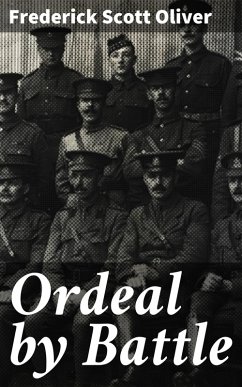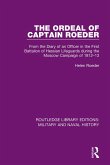In "Ordeal by Battle," Frederick Scott Oliver presents a compelling analysis of the transformative impact of war on societies, particularly in the context of World War I. Written with a blend of academic rigor and rhetorical flourish, Oliver's work explores the intersection of military strategy, national identity, and moral philosophy. His prose is characterized by rich historical detail and a nuanced understanding of the psychological dimensions of conflict, positioning the book as a critical inquiry into the ethics and experiences of warfare during a time of unprecedented global upheaval. Frederick Scott Oliver, a distinguished historian and political commentator, drew upon his robust educational background and profound engagement with contemporary political issues to craft this work. His firsthand observations of the societal consequences of war informed his narrative, enabling him to dissect not only the military aspects but also the cultural and sociopolitical ramifications of conflict. Oliver's prior contributions to political discourse and historical analysis solidified his expertise, allowing him to address the greater implications of warfare in a rapidly changing world. "Ordeal by Battle" is a thought-provoking read for scholars, students, and general readers alike, offering essential insights into the moral dilemmas and human experiences shaped by war. Oliver's adept storytelling and keen observations not only illuminate the past but also resonate in today's ongoing discussions about conflict and identity, making this book a vital addition to any library.
Dieser Download kann aus rechtlichen Gründen nur mit Rechnungsadresse in A, B, BG, CY, CZ, D, DK, EW, E, FIN, F, GR, H, IRL, I, LT, L, LR, M, NL, PL, P, R, S, SLO, SK ausgeliefert werden.




![Ordeal By Fire: An Informal History Of The Civil War [Illustrated Edition] (eBook, ePUB) Ordeal By Fire: An Informal History Of The Civil War [Illustrated Edition] (eBook, ePUB)](https://bilder.buecher.de/produkte/44/44758/44758015m.jpg)




